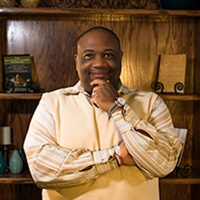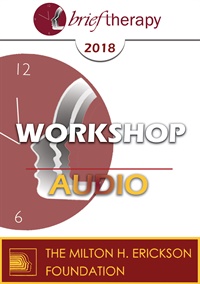BT18 Workshop 02 - Love the Questions: 5 Categories of Solution Focused Questions That Will Transform Your Practice - Elliott Connie, MA
- Average Rating:
- Not yet rated
- Topic Areas:
- Workshops | Brief Therapy | Interviewing | Solution Oriented Approach
- Categories:
- Brief Therapy Conference | Brief Therapy Conference 2018
- Faculty:
- Elliott Connie, MA, LPC
- Duration:
- 1:13:19
- Format:
- Audio Only
- Original Program Date:
- Dec 07, 2018
- License:
- Never Expires.
Description
Description:
Since the Solution Focused Approach is a questions based process, it is essential that clinicians learn the art of asking the kinds of questions that lead towards sustainable questions in their clients' lives. This means your learning has to go beyond theory and technique, instead being about language. This workshop will be about this question process. The facilitator will demonstrate 5 different categories of SFBT questions showing how to ask such questions in a way that leads towards the kind of client responses that are likely to lead towards change.
Educational Objectives:
- Describe the Solution Focused Approach in their work.
- Identify the core components that make Solution Focused questions more effective.
- Identify the difference between problem focused and Solution Focused questions.
*Sessions may be edited for content and to preserve confidentiality*
Credits
Faculty

Elliott Connie, MA, LPC Related Seminars and Products
Elliott Connie is a solution focused therapist with his private practice based in Keller, TX. Elliott specializes in using the solution focused approach to work with couples. He is the co-author of the book The Art of Solution Focused Therapy, and his second book, Solution Building in Couples Therapy, was released in 2012. His latest book, The Solution Focused Marriage: 5 Simple Habits That Will Bring Out the Best in Your Relationship, is now available.
Elliott has traveled throughout the United States and Europe, including the UK, Sweden, Poland, Denmark, the Netherlands, Switzerland, Australia, Russia, South Africa and Canada, training psychotherapists to work more effectively with couples, and helping couples to build more satisfying relationships.


